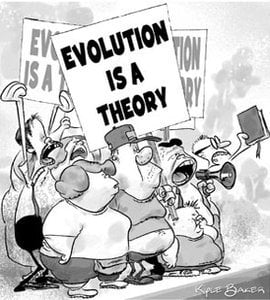Defending secularism in schools
One of the things that stays with me from the 2012 Global Atheist Convention in Melbourne was the oddity of hearing Marion Maddox – a Christian – being the loudest voice in defence of secularism in schools during one panel discussion, even though the other 3 members of the panel were atheists.
It’s not that the others weren’t defenders of secularism, but more that she seemed to care about it even more than them. And I can see that making sense, because leaving religion as a matter of personal conscience – and leaving it out of schools entirely – means more than simply keeping mention of god-dy stuff away from non-believers. It also means that you will never be forced to attend or participate in the ceremonies or practices of religions other than your own.
Defenders of religious expression sometimes forget the fact that often, it’s only contingently the case that you’re defending the expression of a religion you happen to belong to, and that this coincidence can’t be guaranteed. If your neighbourhood school were over time to evolve into one of a different faith, religious folk might also suddenly wish for the school to be stubbornly secular.
A second reason to defend secularity, at least in my view, is because a secular environment is well suited to fostering free and rational choice and taking responsibility for our choices, as I argued in this column defending the rights of children to wear religious headgear at public schools. It’s clearer to see the relationship between our beliefs and our actions if we aren’t forced – not matter how implicitly – to perform certain actions.
Secular does not need to mean (in fact, ideally would not mean) hostility towards religious expression. It would mean neutrality, while allowing for the free expression of religious belief so long as that expression accorded with any applicable laws.
South Africa has a mostly superb framework ensuring secularism in our public schools. I’ve written about aspects of this before, but unfortunately, public schools routinely ignoring the explicitly secular (but tolerant) National Policy on Religion in Education.
One school, for example, explicitly name-checks this Policy in their own policy on religion, drafted a few months ago, before going on to say that the “Governing Body of this school decided that Glenstantia Primary shall be a Christian based school” – which can’t avoid but create an impression of bias rather than neutrality towards not only religion, but more importantly, a specific religion.
It’s these subtle invocations of one or another god that don’t attract quite enough attention for my liking. In South Africa, if a group of parents were to ask the Department of Basic Education to account for their numerous failures to enforce the Policy, I’d expect a similar outcome to the one achieved by Vashti McCollum in 1948, when the US Supreme Court agreed that calling religious observances “voluntary” could cover up a multitude of sins.
As the majority opinion in that case states, “both religion and government can best work to achieve their lofty aims if each is left free from the other within its respective sphere”. Calling a school “Christian” or “Muslim” already makes someone who believes in something else, or nothing, feels like an outsider. But the violations of the policy don’t stop there, at least for this school.
The Bible is read at all “assemblies and school gatherings”, and all pupils have to attend these events where hymns are sung and prayers said. You need not participate – but then you need a letter from your parents excusing you.
There are two clear problems in this: first that there’s nothing “equitable” about how religions are treated here, and second, a non-religious child in a religious family is either forced to lie (through participating in a charade) or forced into a very difficult confession of non-faith to a potentially hostile family.
In these sorts of of situations, who would blame the scholar for not simply taking the easy route, succumbing to peer, school and family pressure through pretending to be religious? For institutions like schools that are meant to teach the ability to think, be independent and so forth, this doesn’t seem a good start. Neither is it a good start in a life of Christian virtue, if you’re attracted to the faith via a subtle form of bullying.
This is not only the grouching of an atheist, but a concern that should be shared by every Muslim, or Jewish, or whatever, parent that has a child at a school like Glenstantia. The point of secular provisions in public institutions is that they protect us all from undue influence to toe a particular line, allowing for free expression of whatever beliefs you have, regardless of how fashionable, popular, or government-endorsed they are. We’re all free to believe what we like, and to engage in whatever religious practices we like – or not to, as the case may be.
Either way, it doesn’t have to be anyone else’s business other than yours. If you want to start and end your day with a prayer, go ahead. But why should doing so be forced on other people’s children, or made everyone (anyone) else’s business?
This is a heavily edited (but still bearing similarities) version of a column that first appeared in the Daily Maverick



Recent Comments